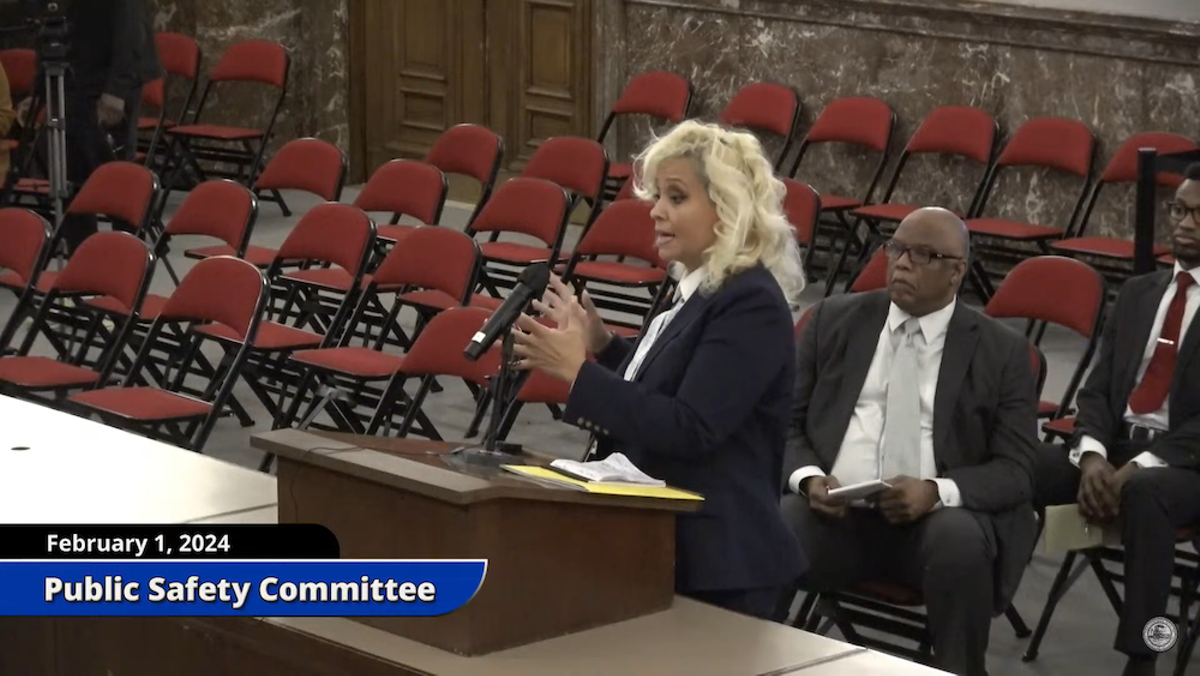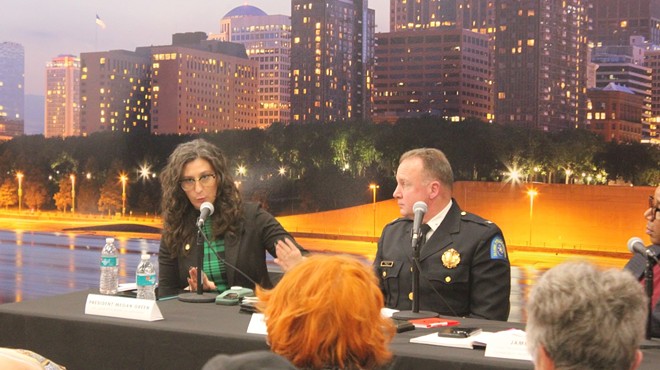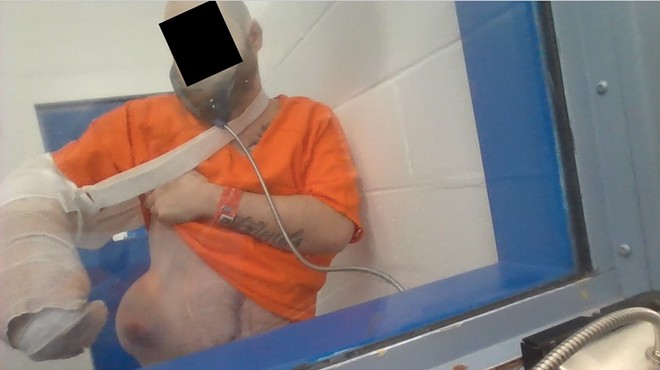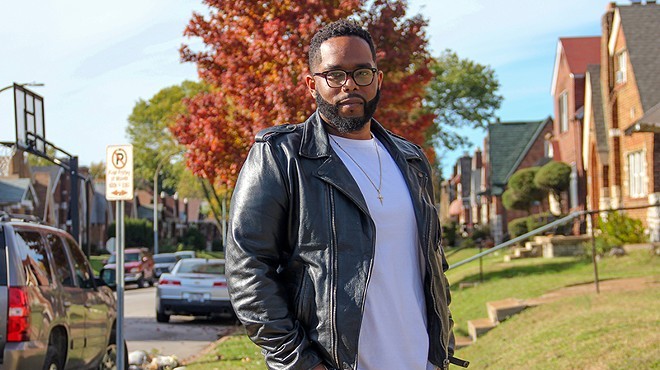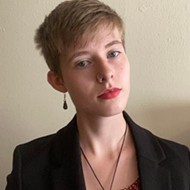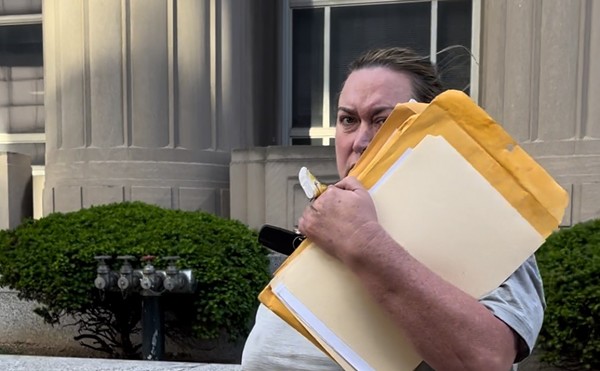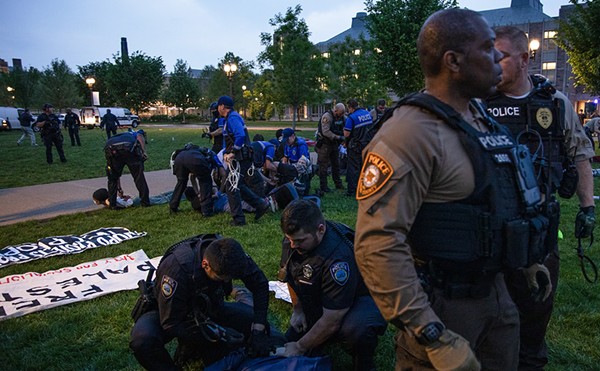Inez Bordeaux knows firsthand the horrors of St. Louis’ City Justice Center because she was detained there 12 years ago.
During this period, she and 20 other women were left in acell that was 10 feet wide by 8 feet high for days, she said during a Public Safety Committee meeting on Thursday.
They had no toilet, were denied access to showers, and on a few occasions, staff forgot to feed them. One of the women in the cell with Bordeaux was detoxing and left to sit in her own feces and vomit for three days, Bordeaux said.
Since Bordeaux’s detainment, not much has changed in the detention center, she said — even as it’s become the city’s sole jail following the 2021 closure of the Medium Security Institution, better known as the Workhouse.
“This kind of thing continues to happen in CJC and that is unconscionable,” Bordeaux said.
The St. Louis Board of Aldermen put concerns about the City Justice Center on the agenda of its Public Safety Committee after outrage over conditions at the jai bubbled over at a January town hall meeting. Seeking to quell interruptions to that meeting, the city promised a committee hearing on jail issues featuring public comment.
The jail has been embroiled in controversy following a slew of deaths, testimony about the lack of medical treatment accessible to detainees and what has been described as a riot where a guard was taken hostage.
The agenda item to discuss the issues appears to have been added on relatively short notice, activists say, on a weekday and with little fanfare. Even so, a slew of activists, including Bordeaux, brought dozens of concerns and questions, only to be met with few answers from city officials.
In preparation for the meeting, Mike Milton, founder of the Freedom Community Center, spoke with individuals who were recently released from CJC as early as last week.
“They confirmed what we already knew, that CJC is still a present-day torture device,” Milton told the committee. “They confirmed that many were denied regular showers, water, nutritious food, medical treatment and life-saving medication, and more.”
Specifically, one person said in early January they had to save their cellmate from dying.
“He was having a seizure, he beat on the door for 30 minutes while his cellmate lay unconscious, convulsing,” Milton said. “They thought he had died.”
Other issues highlighted by activists and those who were previously held in City Justice Center included the use of chemical irritants on detainees, the denial of showers after mace was deployed and 23-hour lock-ups.
However, the focus of the discussion remained on a lack of medical care and recent deaths in the facility.
Midway through the public comment portion of the meeting, Dr. Matifadza Hlatshwayo Davis was called to provide an update on her oversight of the facility.
The city’s health director, Davis was asked by Mayor Tishaura Jones to provide oversight to the CJC’s medical system.
Davis engaged directly with members of the community during her report and took questions as she went through the material, facing the community as often as the aldermen.
So far during Davis’ tenure overseeing the jail she has prioritized an emergency contract for a different provider of medical services that began December 1 and she is in the final stages of hiring a new chief medical officer for the facility who has a psychiatry background.
Davis said she inherited a slate of problems and a miniscule budget and doesn’t have all the answers the community needs yet.
Committee members asked Davis to describe the jail’s backlog of requested medical care.
“What is so frustrating about the backlog is, in order for me to even figure out what the backlog is, I have to find records from a provider that’s not even here,” Davis said. “I’m not even going to lie to you and say that I trust the number of backlogs that you’ve seen in other hearings.”
The number of medical cases stuck in the backlog is unclear and won’t be until the data can be cleaned and confirmed, Davis said. “We are well aware of the backlog, and I’m devastated. I’m devastated.”
Davis was also asked whether detainees are experiencing any faster access to care. She did not give specifics on how long they’re waiting, but said:
“I won’t sugarcoat it, the timing is terrible and the timing has been terrible for a long time.”
Nearly three hours into the public meeting, Committee Chair Bret Narayan welcomed Corrections Commissioner Jennifer Clemons-Abdullah to the podium to respond. She seemed confused.
“Um, I thought you guys would have questions for me,” Clemons-Abdullah told the committee.
“I was hoping that you’d be able to address some of the concerns that were raised by the members of the community,” Narayan said. “Then I know there are questions for you, certainly.”
Under questioning from Alderman Rasheen Aldridge, Clemons-Abdullah admitted she hadn’t changed any policies or procedures in the facility during her time as commissioner. She also acknowledged that the City Justice Center is down 100 staffers at this time.
Clemons-Abdullah did address some of the community’s concerns, including questions about allegations in a class action lawsuit against the city that jail staffersuse chemical agents in a punitive manner. She said mace and the use of chemical irritants against detainees was necessary but that the staff would be learning “how to communicate in an effective manner” so as not to resort to deploying mace so frequently.
“I don’t think we use it as much as we used to, but it is necessary in the environment,” Clemons-Abdullah said.
Many of the concerns expressed at the meeting centered around medical neglect in the jail and were spurred by the 11 deaths that have taken place in the 27 months Clemons-Abdullah has held her position.
“I can’t tell you why people have passed away but what I can tell you is that it is abnormal to die in jail and prisons but we do everything we can,” Clemons-Abdullah said— including allowing detainees to see medical providers. It was unclear how quickly detainees are actually able to access this care.
Activists at the meeting reiterated calls for Clemons-Abdullah to be fired.
“People will continue to die if the city doesn’t fire Jennifer Clemons-Abdullah,” said Lee Harkins.
Subscribe to Riverfront Times newsletters.
Follow us: Apple News | Google News | NewsBreak | Reddit | Instagram | Facebook | Twitter | Or sign up for our RSS Feed

